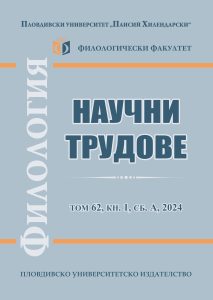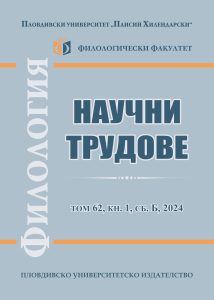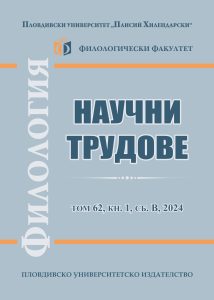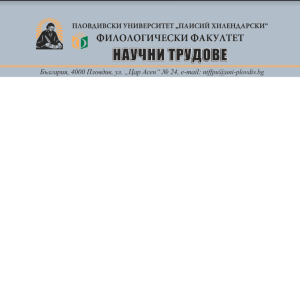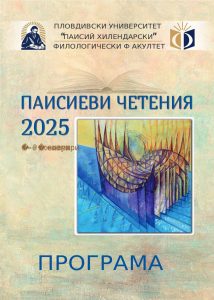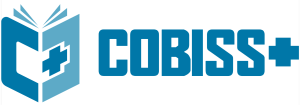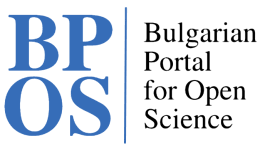The Editorial Team includes all parties involved in processing the papers from receiving to the publishing office: Editor-in-Chief, Academic Secretaries, Editorial Board (within which – Operational Team), Technical Assistants, and Proofreaders.
General
General duties of the Editorial Team include constant work for improving the quality and integrity of the edition, striving to meet the needs of authors and readers, encouraging fruitful academic debates, etc. The team shall guarantee adherence to editorial policies and publishing ethics. It also ensures that the quality of the published papers matches the high academic standards. An important responsibility of the members of the Editorial Team is to promote the edition at relevant national and international events.
The Editorial Team is familiar with the International standards for editors published by COPE and, in his or her work, refers to them as appropriate.
Reviewing manuscripts
When a submitted manuscript falls within the scope of expertise of a member of the Editorial Board, he or she is asked to review the paper.
When a member of the Editorial Board serves as peer reviewer, Duties and Responsibilities of the Peer Reviewers apply.
Fair play
The Editorial Team shall treat and evaluate manuscripts for their intellectual content and academic merit (originality, importance, credibility, clarity) without regard to an author’s race, sexual orientation, citizenship, ethnic origin, religious beliefs, institutional affiliation or political philosophy.
Confidentiality
No information about a submitted manuscript should be disclosed to anyone other than the corresponding author, respective and potential reviewers, other editorial advisers, and the publishing office. It will be ensured that the submitted material remains confidential until publishing.
The Editor-in-Chief and the respective consultant from the Editorial Council should preserve the anonymity of the reviewers and should not disclose to the author(s) the names of the reviewers.
Disclosure and conflicts of interest
A key principle of our policy in this respect is avoiding any potential conflict of interest. To this end, assigned peer reviewers are always from an institution different from the one the manuscript author is affiliated with. In addition to that, peer reviewer has no family connection with the author.
Unpublished materials disclosed in a submitted manuscript must not be used in research conducted by a member of the Editorial Team without the explicit written consent of the author(s). Any member of the Editorial Board should withdraw him- or herself from considering manuscripts in which he or she has conflicts of interest resulting from family, collaborative, or competitive relationships with any of the authors.
The Editorial Team doesn’t disclose any personal data or unpublished materials to a third party without the written consent of the author.
*Because of the size and scope of the edition, the Editorial Team, including the Editor-in-Chief, operate with the help of the Editorial Council (i.e. Operational Editorial Team). It is coordinated by the Editor-in-Chief with the assistance of the Academic Secretaries and consists of members of the Editorial Team responsible for ensuring that the whole editorial and reviewing process runs smoothly and on time. While following strict confidentiality rules, they perform various duties such as processing submitted manuscripts, monitoring the flow of papers and making sure all needed files are sent on time, correspondence with authors and reviewers, archiving documents, etc.
*In addition to the above-mentioned rules that the whole team adheres to, the Editor-in-Chief has some specific responsibilities.


